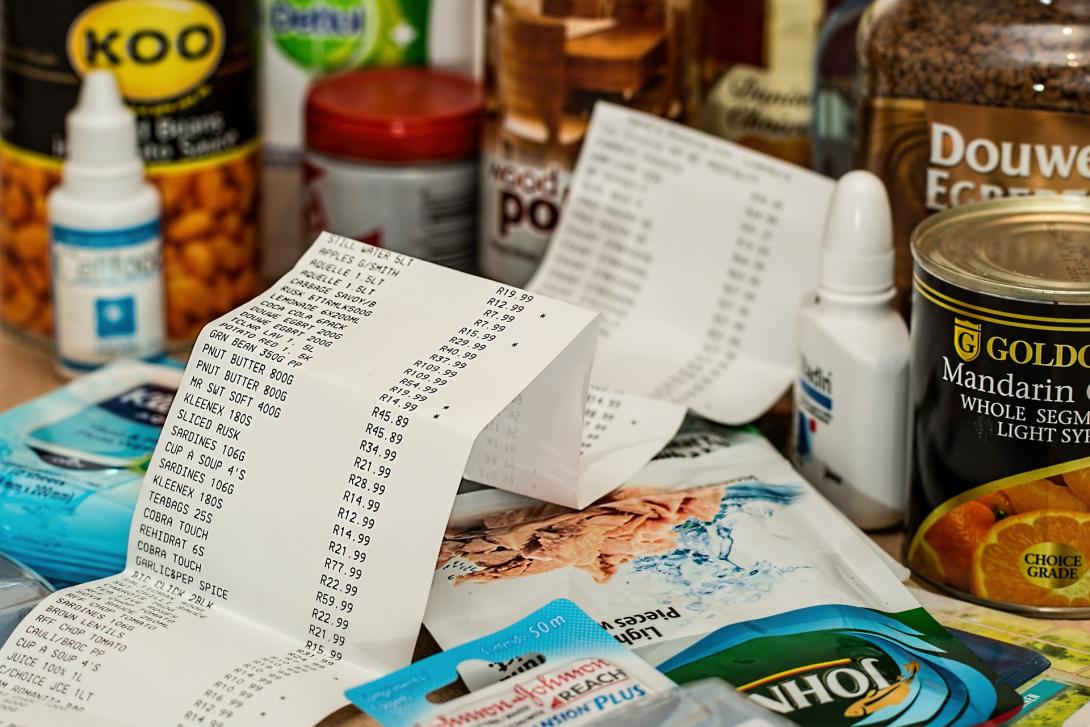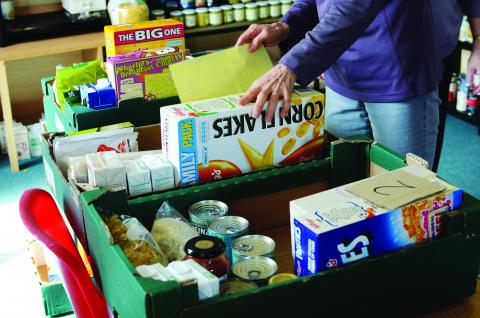21 February 2025
Food Prices Tracker: February 2025

By Katina-Leigh Taylor
Food Price Inflation and the Government’s response to the House of Lords Food, Diet and Obesity Committee’s report Recipe for Health: A Plan to Fix Our Broken Food System.
The latest ONS data shows inflation has risen by 3% (CPI) in the 12 months to January 2025, this is up from 2.5% in the 12 months leading up to December 2024.
With this data release we have also seen food inflation rise by 3.3% (CPIH) over taking overall inflation for the first time since September 2024.This indicates that food prices are starting to rise at a faster rate meaning increased prices on supermarket shelves.
The rising cost of essentials such as food hits low-income households the hardest, as they spend a greater proportion of their disposable income on food.
Concerningly, grocery shoppers are being warned of further food price increases in the coming months as retailers who are subject to the cost of budget tax rises (such as the rise in National Insurance) may pass through any cost rises.
The British Retail Consortium has forecast an average food price rise of 4.2% in the latter half of 2025.
The cost of healthy food is rising more quickly than unhealthy food
Last month, the Food Foundation published its Broken Plate 2025 report, revealing that healthier foods are, on average, more than twice as expensive per calorie as less healthy options as defined by the government’s Nutrient Profile Model.
In 2024, healthier foods cost £8.80 per 1,000 kcal on average compared to £4.30 for less healthy foods. Furthermore, over the past two years, the price of healthier foods has risen at twice the rate of less healthy foods; the cost of healthier foods has risen sharply by 21% between 2022 and 2024, compared to an 11% increase for less healthy foods.
This analysis by the University of Cambridge, using the Office for National Statistics’ Consumer Price Index, highlights a significant disparity in food costs.
The steep rise in food prices exacerbates financial pressures on families already struggling to afford a nutritious diet and contributes to food insecurity being widespread across the UK
The Food Foundation’s Food Insecurity Tracker showing that one in seven households were food insecure in June 2024, affecting approximately seven million adults and three million children.
Government action on food prices and food insecurity continues to be insufficient
The House of Lords Food, Diet and Obesity Committee’s report Recipe for Health: A Plan to Fix Our Broken Food System cited research by Food Standards Scotland and the Food Standards Agency in Northern Ireland, which found that an essential food basket costs between 23% and 40% of a low-income household’s income.
Similarly, The Broken Plate 2025 report found that the most deprived fifth of the population would need to spend 45% of their disposable income on a healthy diet, rising to 70% for households with children, highlighting the severe affordability gap in accessing nutritious food.
The House of Lords report urged the Government to take action to make healthier food more affordable.
It recommended commissioning a comprehensive review of the most effective policies to encourage businesses to produce and promote healthier, minimally processed foods such as fruits, vegetables, legumes, nuts, seeds, and whole grains.
They recommended this should include exploring both universal subsidies and targeted support for low-income households. However, this recommendation for a review was not addressed in the Government’s subsequent response.
In response to the House of Lords report, the Government pledged to explore the implications of regularly reporting the cost of a healthy food basket.
The report had called for quarterly estimates to be published and submitted to Parliament alongside progress on nutrition and public health targets.
The Government response commented on some of the challenges of tracking these costs - such as regional disparities in food access and stated that more evidence is needed before implementing any measures.
The House of Lords report also called for urgent action to make healthier food more affordable, including increasing Healthy Start payments and raising free school meal funding to reflect food price inflation. While the Government acknowledged these issues, its response focused on exploring options rather than committing to action.
Without firm measures, key affordability challenges remain unaddressed, leaving low-income families at continued risk of food insecurity.
The government's response to rising food prices and food insecurity suggests that while they acknowledge the issue, their actions remain insufficient to address the scale of the crisis.
The commitment to exploring the cost of a healthy food basket is a step in the right direction, but it falls short of implementing concrete policies that would make nutritious food more affordable.
With food prices projected to continue rising, millions of families will continue to struggle to afford a nutritious diet.
In 2024, the Food Foundation Insecurity Tracker reported that 59.9% of food insecure households were cutting down on fruit, with 44.2% also cutting down on vegetables.
Without stronger intervention- such as strengthening nutritional support schemes such as Healthy Start and Free School Meals, ensuring benefits and wages cover the cost of a healthy, sustainable diet, changing the commercial incentives for businesses to rebalance the relative cost of healthy and less healthy foods in the basket, and stricter regulation of unhealthy food marketing - the government risks allowing food insecurity and diet-related health inequalities to worsen.
As it stands, their response lacks the urgency and decisive action needed to tackle the root causes of food price inflation and ensure that everyone can afford to eat well.

Katina joined The Food Foundation in January 2024 as a Campaigns and Research Administrator, and brings a wealth of knowledge to her role with an MA in Sociology and Social Policy and a BA in Sociology. Her research expertise spans critical areas, including exploring the social determinants of health concerning food poverty, analysing the delegitimisation and polarisation of Black Lives Matter in media discourse, and studying international policymaking regarding abortion legislation. With a passion for understanding societal dynamics, Katina is committed to leveraging her academic background to inform and shape impactful campaigns and research initiatives.

Josh joined The Food Foundation in 2023 as part of the Rank Foundation’s Time to Shine scheme. He completed a BA in Film Studies before continuing to study an MA in Culture and Critical Theory. Before moving to The Food Foundation Josh worked in a variety of roles in a primary school setting, utilising his experience to support the most vulnerable and disadvantaged members of the school community. Josh is interested in the impact that food systems and environments have on people's lives and is driven by a desire to ensure people have better access to a healthy and nutritious diet.




